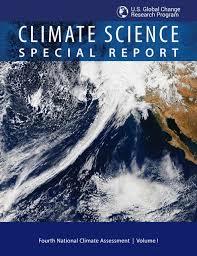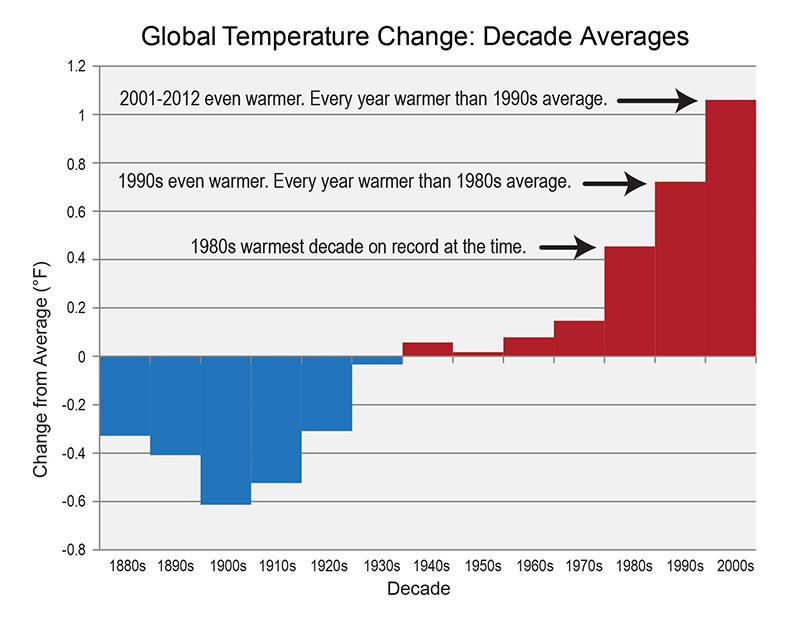The 2017 National Climate Assessment (NCA) Climate Science Special Report (Volume 1) was released on November 3, 2017. The National Climate Assessment summarizes the impacts of climate change on the United States, now and in the future.
 A team of more than 300 experts guided by a 60-member Federal Advisory Committee produced the report, which was extensively reviewed by the public and experts, including federal agencies and a panel of the National Academy of Sciences. Volume II, Climate Change Impacts, Risks, and Adaptation in the United States (NCA4 Vol. II), will be published in early 2018.
A team of more than 300 experts guided by a 60-member Federal Advisory Committee produced the report, which was extensively reviewed by the public and experts, including federal agencies and a panel of the National Academy of Sciences. Volume II, Climate Change Impacts, Risks, and Adaptation in the United States (NCA4 Vol. II), will be published in early 2018.
The U.S. Global Change Research Program (USGCRP) was mandated by Congress in the Global Change Research Act (GCRA) of 1990. Its mandate is to develop and coordinate “a comprehensive and integrated United States research program which will assist the Nation and the world to understand, assess, predict, and respond to human-induced and natural processes of global change.”

Extreme heat will affect health, energy, agriculture, and more. Every four years a new report, developed through extensive input from the latest scientific research, is published and submitted to the President and Congress and to the public. This report assesses the effects of global climate change, both human-induced and natural, on the natural environment, agriculture, energy production and use, land and water resources, transportation, human health and welfare, human social systems, and biological diversity.
A summary of the findings include the following:
- The report confirms the well-established science behind climate change: it is real, it is human-caused, it is happening faster than predicted, and it poses a tremendous threat to America and the rest of the world.
- This is now the warmest period in the history of modern civilization. Global annually averaged surface air temperature, and the annually averaged temperature in the U.S., has increased by about 1.8 degrees F (1 degree C) over the last 115 years (1901–2016), with Alaska warming twice as much. Last year was the third year in a row, following 2015 and 2014, to set a new global record for the warmest year.
- Based on extensive evidence, there is no convincing alternative explanation that anything other than human activity is the dominant cause of the observed warming since the mid-20th Century. The global warming of the past 50 years is primarily due to human activities, predominantly the burning of fossil fuels.
- Global atmospheric carbon dioxide concentrations have now passed 400 parts per million (ppm), a level that last occurred about 3 million years ago, when both global average temperature and sea level were significantly higher than today. Continued growth in these emissions over this century and beyond would lead to an atmospheric concentration not experienced in tens to hundreds of millions of years.
- Human-caused climate change has made a substantial contribution to the observed 7–8 inches of global average sea level rise since 1900, the greatest rate of rise in at least 2,800 years. Global average sea level is expected to continue to rise by at least several inches in the next 15 years, and by 1–4 feet by 2100. A rise of as much as 8 feet by 2100 cannot be ruled out.
- The report also focuses on regions within the US and for the Southeast region, and details the following threats: 1) Sea level rise poses widespread and continuing threats to the region’s economy and environment. 2) Extreme heat will affect health, energy, agriculture, and more. 3) Decreased water availability will have economic and environmental impact.
Read the complete report at https://science2017.globalchange.gov/.




